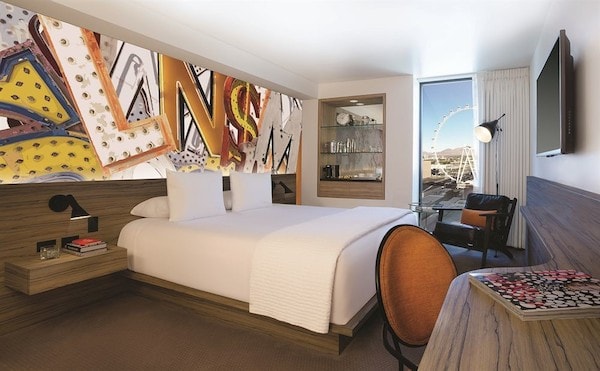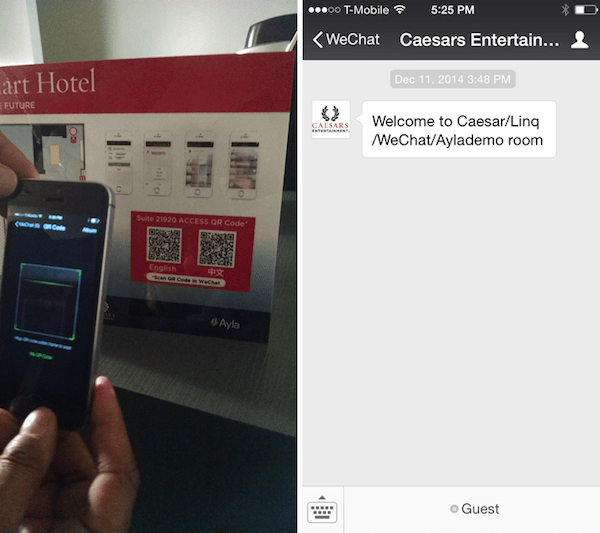Wechat Powered Hotels
by Chou Bi Yu, Leonard Lee-Ralph Lim Yue Tai, Loh Jun Kai
15 Nov 2018
A WeChat-powered hotel in China and LA lets you check in, enter your room, and get breakfast through your phone
China’s biggest app, WeChat, partnered with InterContinental to open a smart hotel in Shanghai that lets users book rooms, remotely check in, and use their phones as key cards — all without requiring human assistance. Once they’ve completed their reservation, travelers verify their identity at the hotel through facial recognition and collect their digital key card. Although the hotel is 88 feet underground, it’s connected enough to provide quick internet services, according to a press release it shared with The Verge.

WeChat and its parent company Tencent have been working on developing smart hotel experiences since 2014, but now it’s added facial recognition into the mix for faster identity checks. Traditionally, hotels in China require you to take a photo of your face and present government ID to be scanned and copied before you can enter your room. However, internet access offered by most hotels in China also remains restricted by the firewall enforced by regulators, and many Western hotel chains have stopped offering VPNs for free.
Through WeChat, travelers can also order room service, make payments, set air conditioning in the room, and adjust curtains and lighting. Breakfast vouchers are included in the customer data within the app, so you can just scan your face at the dining area to grab a meal. If you’ve booked an executive suite, there’s a 24-hour butler service that you can summon through WeChat. Similarly, check-outs are also done through the app.
WeChat has been integrated in many areas of commerce in China, including restaurants and shopping malls. The novelty with InterContinental is that WeChat has made turned its tech into an entire hotel experience and not just a quick transaction.
Smart hotels in China that are created through partnerships with tech giants like Baidu and Alibaba have also become increasingly common over the past year. But while Baidu may have popular smart speakers and Alibaba boasts superior robots and facial recognition tech, WeChat is still the country’s most popular app, offering a host of functions including cab-hailing and gaming. Last week, WeChat parent Tencent also inked a deal with Shangri-La, so more hotel locations with these in-app capabilities are expected to open soon.
On the sidelines of CES in Las Vegas, Ceasars Entertainment partnered up with WeChat to give tours of new smart hotel rooms at The LINQ, a local hotel and casino. Visitors could use an app inside WeChat to control lighting, thermostats, and curtains.
The connected suites will be the first of many such hotel rooms from Ceasars catering to overseas Chinese. After arriving at the room, they just need to scan a QR code to get the app. The app, which operates as a WeChat official account, was developed by Silicon Valley-based Ayla Networks.

“For the LINQ suite the devices are controlled through WeChat exclusively, but Ayla-powered devices can basically be controlled by any app via any home hub that runs on Zigbee, Z-wave or Wi-Fi,” says Sharon Chan, a public relations representative speaking on behalf of the project.
In 2013, 300,000 visitors from Hong Kong and China travelled to Las Vegas, nearly doubling in the last two years. Ceasars said in a statement: “Collaborating with leading companies like Ayla and WeChat helps make our customers feel even more at home when they can interact in our resorts using technology and apps like WeChat that they use daily.”
Ceasars operates 50 casinos across the US and four other countries.
The collaboration with Ceasars is one of many projects WeChat is using to study foreign markets outside of China for new opportunities. “We aim to build up an ecosystem for merchants to leverage on WeChat to implement O2O strategies and projects. The Ceasars hotel project is one of partners we are working with,” Tencent spokesperson Limin Chen said. “Other projects that connect WeChat to the offline world include Easy Taxi official account implementation in Asia, Zalora project in Asia, and YOOX shopping accounts in the US, Italy, and China.”
Can you think of any other ways technology has been implemented in our daily lives?